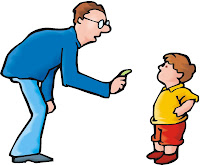COMMENTS & QUESTIONS [for June, 2018]
Do you need some assistance in parenting your Aspergers or HFA child? Click here to use Mark Hutten, M.A. as your personal parent coach. ~~~~~~~~~~~~~~~~~~~~~ My name is Heather. I have a 6.5 year old child on the high functioning end of the spectrum. I wanted to send you a message over Facebook as that is where I found your content, but, there wasn’t an option. I found your email through your website. I wanted to personally send you a quick message to say thank you for disseminating such important and vital information specifically targeting children who are have Aspergers. Because my son is so high functioning, we have been questioned, ridiculed, and at times been laughed at when trying to explain his struggles. My son is very verbal and friendly and is often labeled as a bad child or an awkward weird child but never autistic. Luckily , his school has recognized the autism and we are getting a lot of help through them. However, we have family members that we cannot be around a



